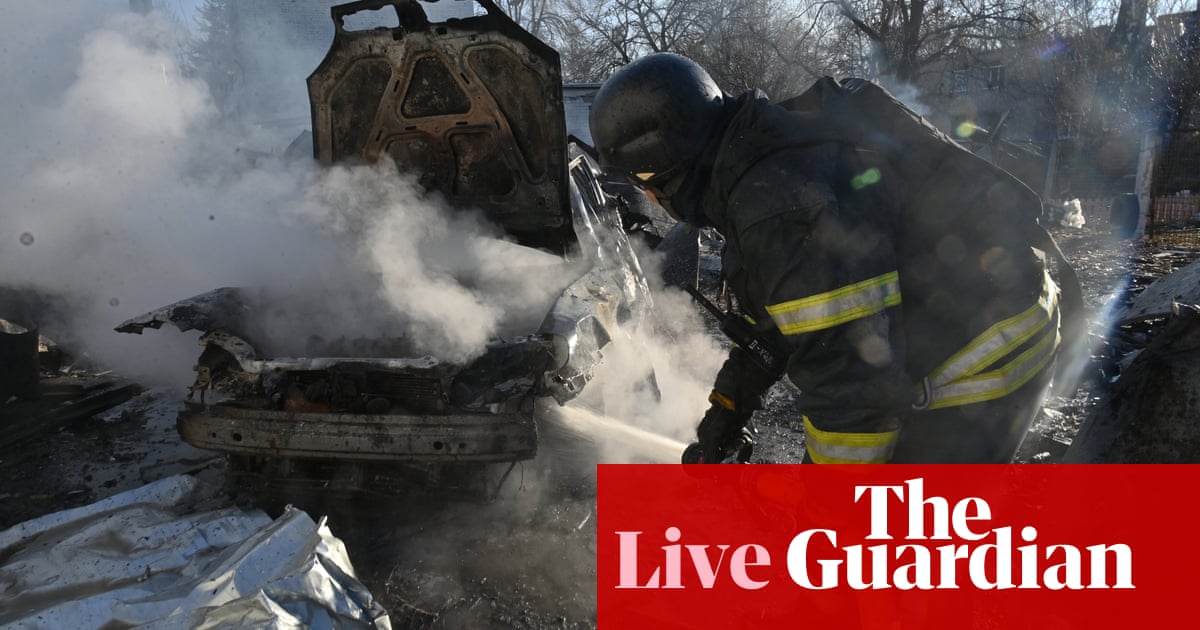With more NATO allies, will the US store arms in Europe’s High North?
:quality(70)/cloudfront-us-east-1.images.arcpublishing.com/archetype/IXKUN2L7KJBEVHH6QUHLLZ3EPU.jpg)
HUNTSVILLE, Ala. — The U.S. Army is considering pre-positioning stock in Europe’s High North amid Finland and Sweden officially joining NATO, according to the deputy chief of Army Materiel Command.
“We’ve incorporated two new NATO allies. So what does that mean for the High North in particular, and is there an expansion on the horizon for the High North from an [Army pre-positioned stock] standpoint?” Lt. Gen. Chris Mohan told Defense News in a March 27 interview at the Association of the U.S. Army’s Global Force Symposium here.
Army Materiel Command would be in charge of placing the service’s pre-positioned stock in the region, should the strategy dictate such a move. The command is contributing to the decision-making process, Mohan said, but the Army’s Pentagon-based team in charge of plans, operations and training is in charge of developing an Army pre-positioned stock strategy for the region.
Storing equipment and weapons in the region near the Arctic Circle would mean the Army could learn more about how extremely cold weather impacts materials and what the service would need to do in order to winterize capabilities, Mohan said.
Whether or not the Army decides to place stock in Scandinavia, it is still expanding its pre-positioned stock on the continent to reach a division-sized set.
Fiscal 2025 budget documents show the Army plans to spend $536 million to enhance the pre-positioning of its stock with the division set to include corps-level enablers with two armored brigade combat teams, fires, air defense, engineer, sustainment and medical units.
In order to build out a division-level set, Mohan said, continued expansions will be made at existing Army pre-positioned stock locations. He noted the service will modernize equipment as new capability becomes available, such as tube-launched artillery. The Army will also consider other locations for expansion.
Some of the equipment, like tube-launched artillery and rocket artillery sent to Ukraine, is being back-filled into the Army’s pre-positioned stock as it comes off the production line, Mohan added.
The Europe-based stock has received a heavy workout since Russia launched its full-scale invasion of Ukraine in early 2022. Initially the U.S. Army moved a heavy brigade set from southern Germany to four positions in Poland as well as sites in the Baltic region for the 3rd Infantry Division to use, according to Mohan. The effort included multiple virtual rehearsals, which contributed to a streamlined process, he noted.
While that capability has since gone back to Germany, the Army is permanently moving an entire brigade set of equipment to Powidz, Poland, to a base built and funded by the host country and NATO. The infrastructure at the base was already significant; there is an airfield that is big enough to land a space shuttle, Mohan said.
But for the U.S. Army’s pre-positioned stock, Poland built a state-of-the-art facility there, upgraded rail lines and power infrastructure, and will conduct some standard maintenance on the equipment, he said.
The service is now preparing to issue its pre-positioned stock for this year’s Defender Europe, a large-scale annual U.S. Army exercise in Europe.
The Army’s pre-positioned stock historically has been designed so troops can rapidly draw from it in response to a regional conflict, but the service took a new approach roughly five years ago to use the equipment in military exercises in order to train more effectively how to draw the equipment as well as move it across challenging distances and a variety of borders.
“We want to focus [Army pre-positioned stock] as much on great power competition, to use those stocks in great power competition as much as we had planned on using those stocks for great power conflict,” Gen. Edward Daly, then-Army Materiel Command chief, said in 2020. He explained that meant the Army would exercise its pre-positioned stock much more.
Jen Judson is an award-winning journalist covering land warfare for Defense News. She has also worked for Politico and Inside Defense. She holds a Master of Science degree in journalism from Boston University and a Bachelor of Arts degree from Kenyon College.
Related
Zelenskyy reiterates call for air truce after huge Russian attack…
We need Russia to stop attacks, Zelenskyy says, backing calls for truce in air, at seaUkrainian president Volodymyr Zelenskyy has responded to overnight attacks
Europe scrambles to rearm as Trump threatens security guarantees and…
CNN — European leaders have vowed to rearm the continent at historic emergency talks h
Russia launches ‘massive’ attack on Ukraine after Europe rushes to…
Ukraine's energy and gas infrastructure came "under massive missile and drone shelling" by Russia on Friday, a Ukrainian minister said."The energy and gas infra
American severance may be averted, but Europe’s leaders must fear…
With a mixture of regret, laced with incredulity, European leaders gathered in Brussels to marshal their forces for a power struggle not with Russia, but with t












